Published November 2019
Introduction
In 2017, ING and the Economics Network ran a survey of Public Understanding of Economics (report). In September, we ran this survey again with 1,641 respondents. They were asked a series of questions about their understanding of economics, how they access economic news and how to improve communication of economic analysis and evidence to the general public.
We will be releasing the results from the 2019 survey in a series of reports. The results below give a preliminary snapshot of a subset of the results related to Brexit and the upcoming election. A full report will follow shortly.
Understanding of economics
Overall, around a third of respondents (35%) find discussions about economics and the economy in the media easy to understand whereas about one quarter (23%) say they find such material difficult. The second graph below shows the responses by leave and remain voters.
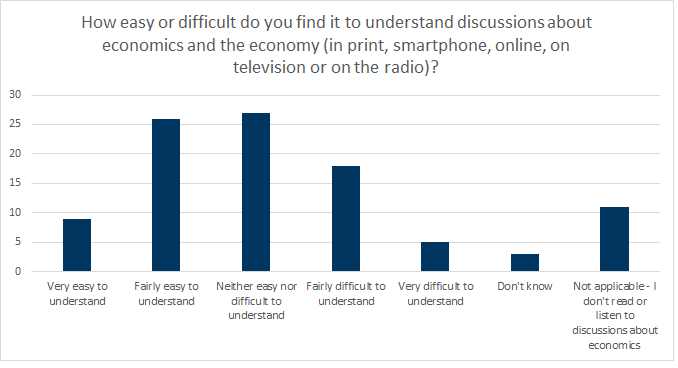
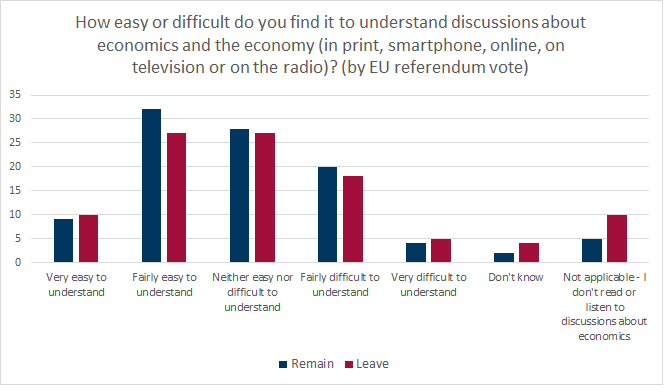
Around 40% of respondents report that economics related to the real world and for informed voting is becoming harder over time. Around a quarter of respondents feel that economics relevant to personal finance is becoming more difficult. 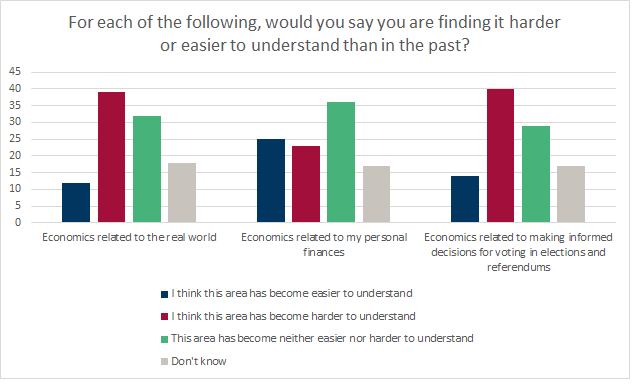
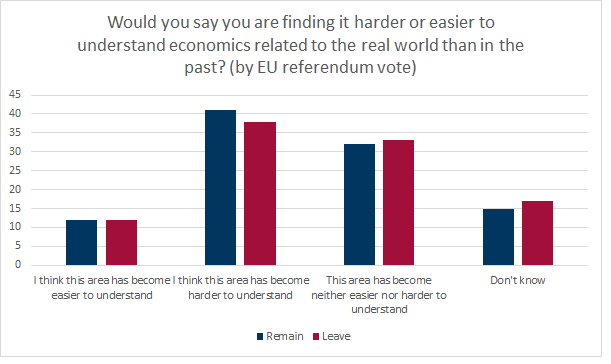
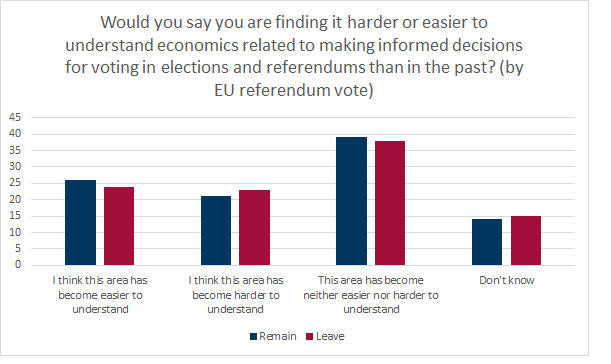
Just under one half (45%) of respondents would like to increase their understanding of economics of the real world and over one half (55%) would like to know more about economics to help them make decisions in elections and referendums. The desire to increase economics understanding about the real world and for informed voting is considerably higher among remain voters (56% and 65%) than for leave voters (36% and 49%). 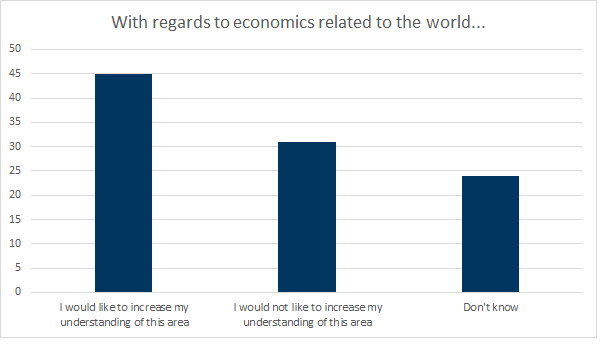
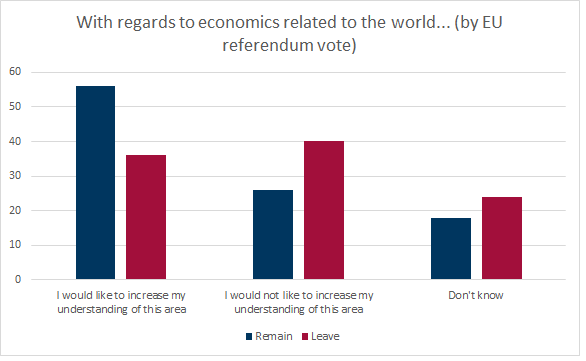
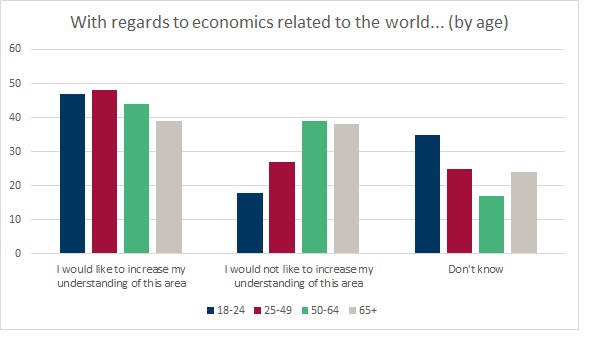
Just under a half of voters (47%) feel they understand the economic consequences of leaving the EU but 42% say that they do not understand these consequences. 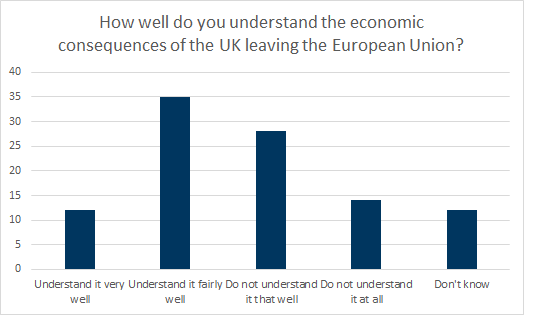
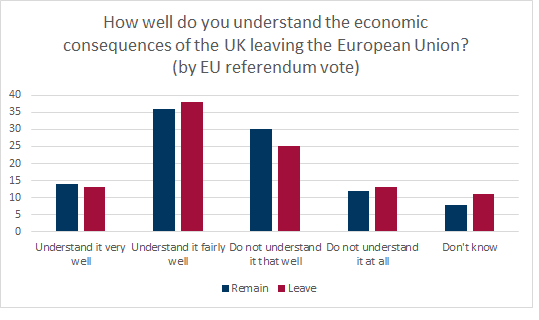
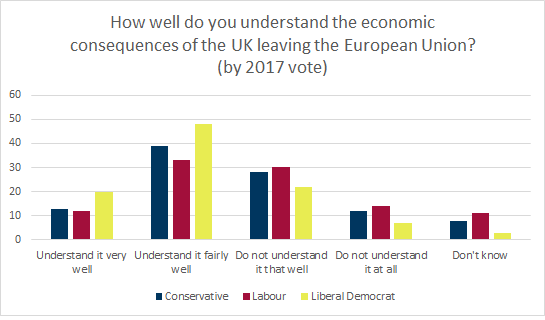
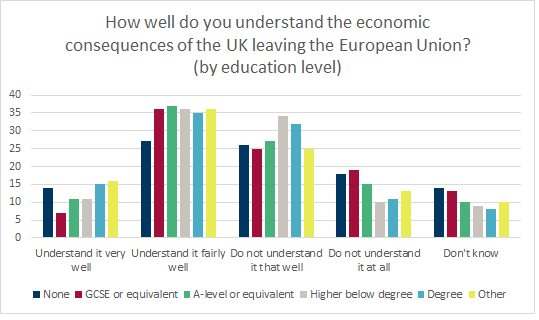
Around one half of respondents felt they understood tariff effects on the economy while 39% say they do not understand these effects.
The survey tested understanding of a few basic economics ideas. Most people (around 80%) correctly answered a question about the effects of inflation on their wages and about government budgeting. However, only about one half (46%) of respondents understood that trade could be restricted using other means than tariffs.
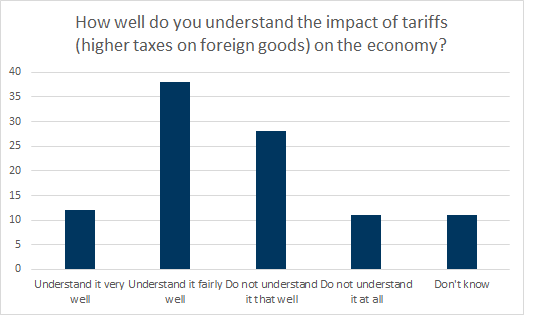
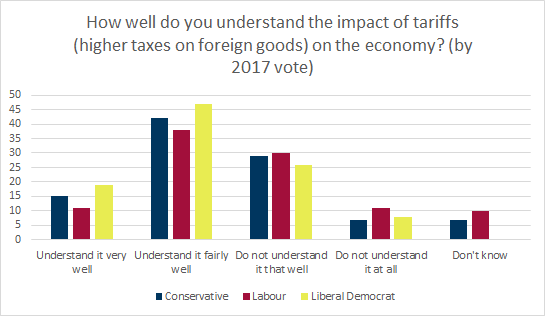
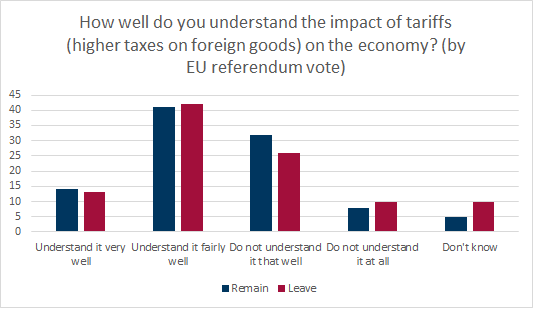
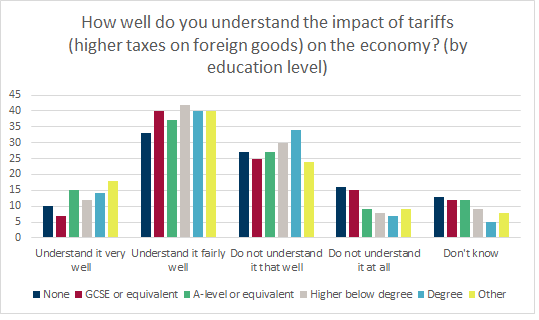
Relevance of economics and economists
A majority of respondents felt that economics understanding is important to everyday life (74%).
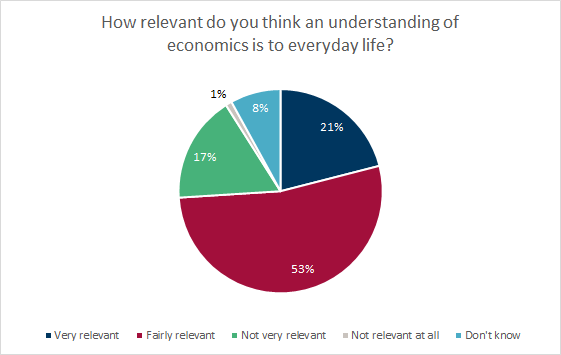
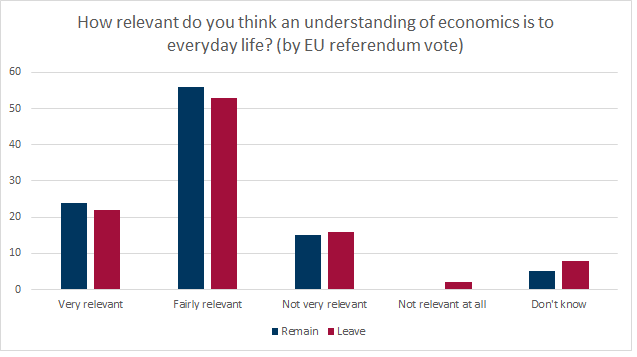
In addition, 70% of respondents felt that the government should listen to the advice of economists. This feeling was stronger among remain voters (84%) than leave voters (64%) but in both cases a strong majority agreed. 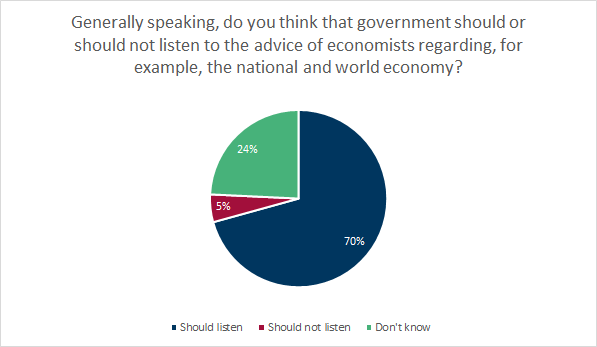
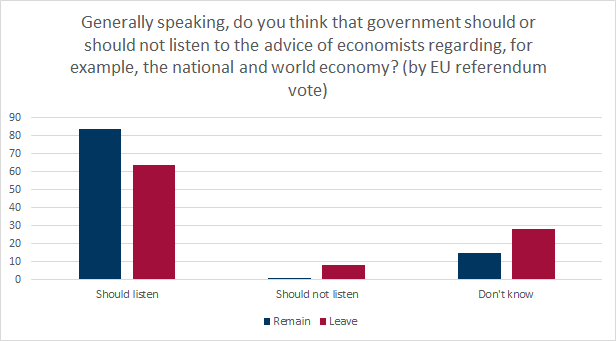
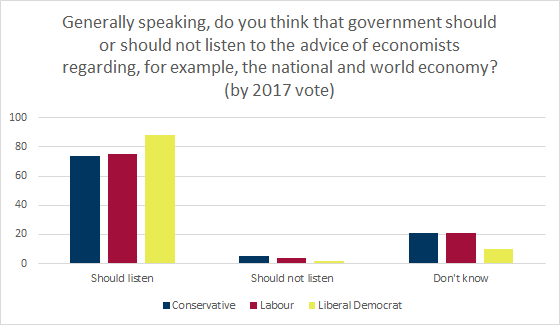
Perceptions of economics and economists
Under a third of leave voters (31%) believe that economists base their comments on verifiable data compared to over a half (58%) of remain voters. Similarly 26% of leave voters believe such comments are based on political affiliations compared to 13% of remain voters.
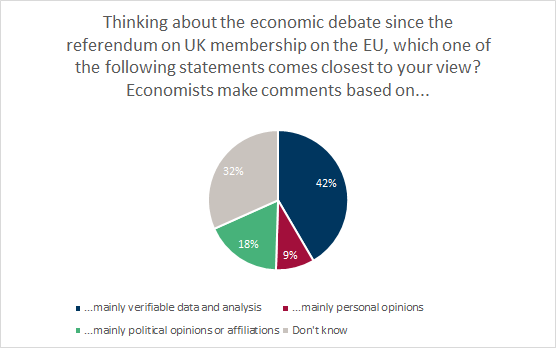
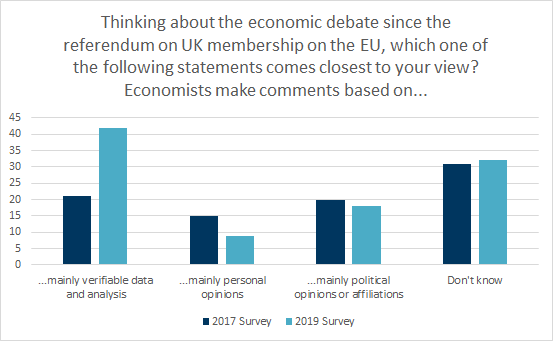
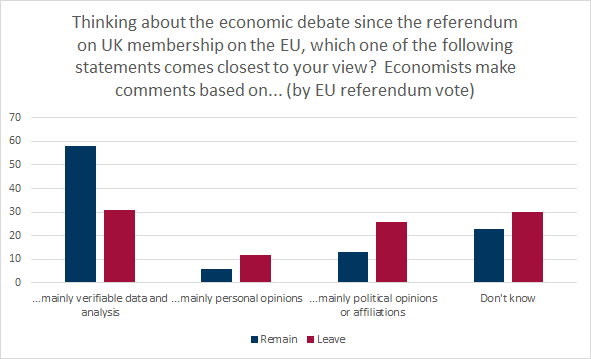
Notwithstanding the above sense of importance of economics, levels of trust in economists are not as strong. Significantly higher numbers of leave voters (51%) distrust the opinions of economists on the world economy compared to remain voters (23%). Leave voters were also more likely (45% compared to 28%) to say that their scepticism had intensified since the EU referendum. 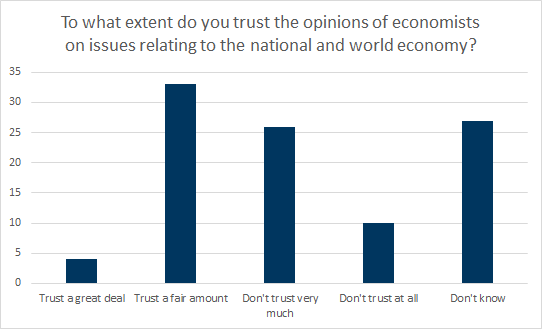
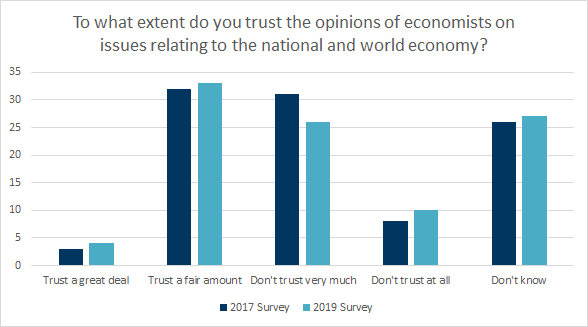
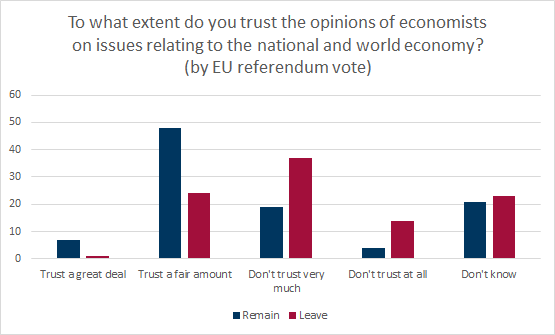
Leave voters were also more likely (45% compared to 28%) to say that their scepticism had intensified since the EU referendum. 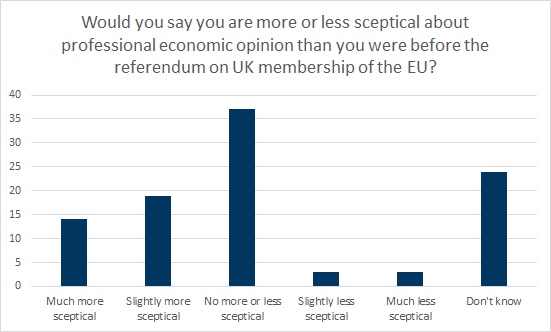
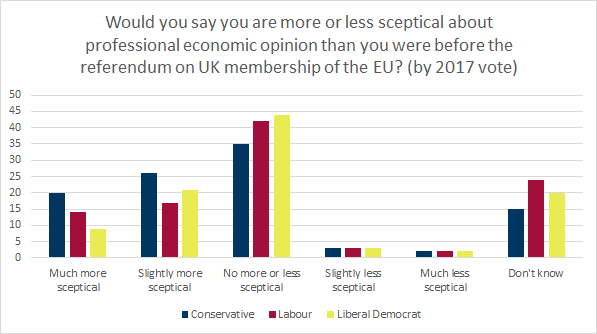
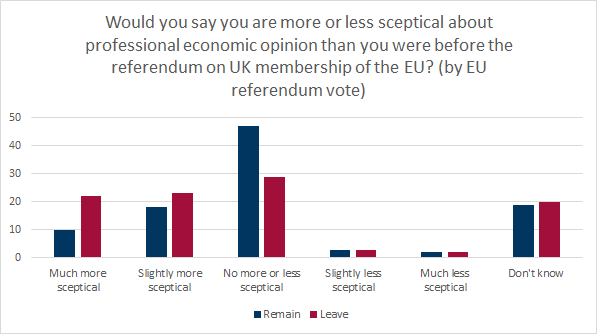
2017 results
Media coverage
- Sarah O'Connor, "How (not) to explain economics to the public" FT.com 24 January 2023
- Chris Giles, "Economists among ‘least trusted professionals’ in UK" FT.com 3 November 2019

